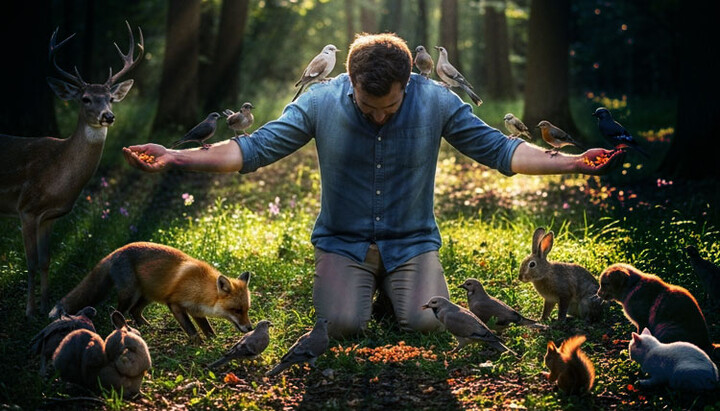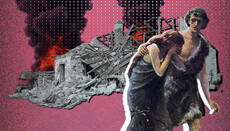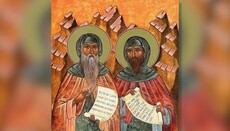Creation Day: Must we ask forgiveness from animals?

Man has become a malignant tumor on the earth, turning it into nothing more than a resource for his comfort and prosperity. On our responsibility toward all living creatures and our repentance before creation.
On Creation Day – the first Sunday of September – we are invited to remember God’s creation. To me, this is reminiscent of International Women’s Day, when men are asked, once a year, to remember that women need their help and support. So here too: we are invited to think about our lesser brethren, to remember that they too have a right to happiness in this earthly world.
I am ashamed before the animals for being human. I am ashamed for what mankind has turned our planet into. Earth is home to about eight million species of living beings, most of them still unstudied. Besides these, there are some 400,000 species of plants, including around 60,000 species of trees.
Man is but one creature among millions, yet he has decided that the whole planet belongs to him, and that he alone has the right to decide what to build, whom to let live, and whom to destroy.
For us, water, forests, animals are but raw material to be consumed for our own wellbeing. If one were to compare humanity to a living organism, then mankind has become a cancer on this planet – spreading uncontrollably, destroying all around it, devouring the earth’s resources, annihilating the lives of countless creatures who have the same right to exist as man himself.
Where man becomes a demon
Animals hunt one another out of necessity, to survive. But man – with his bullfights, circuses, zoos, industrial slaughter of living beings – long ago crossed the boundaries set for the rest of creation.
We have countless canonical rules about whether a Christian may bathe in a bathhouse with a Jew, or whether it is permissible to attend the theater. Yet there is not a single canon forbidding the obvious evil of hunting as entertainment.
Animals share with us the same nervous system; they feel pain and sorrow. They suffer depression, they care for their families, they live lives strikingly similar to our own. Yet man goes into the woods or the mountains, not because he is hungry or his children need food, but simply for the pleasure of killing. Can such a man pray to God afterwards? Has he any right to receive Communion? Who is he now – a human being, or a demon-like creature who delights in inflicting pain and suffering upon the innocent?
Imagine if elk or bears invaded our cities, lured us from our homes, and killed us just for sport. Absurd? Yes. But is hunting any less absurd? Is bullfighting not entertainment for sadists? This is why I am ashamed of mankind. We have morally degenerated to the point that we no longer see the boundary where man ceases to be human and becomes a demon.
Repentance before creation
We must learn to ask forgiveness not only of God, but also of animals, for all the pain and harm we cause them. Ancient people knew how to do this when they were closer to God and to the world around them. This is not paganism, but a sense of unity with all creation. If a man caused harm to another living being, if he became the reason for its suffering, he understood that he bore guilt for this.
This sense of responsibility was not only extended to animals, but also to trees and plants. But for modern city dwellers, repentance before the living world around them is unknown. We have become barbarians.
Our immorality has grown into a monstrous ugliness.
We once said, “We cannot expect favors from nature; to take them from her is our task” (I. Michurin). But a little time has passed, and the saying now sounds differently: “We have taken so much from nature that now there is nothing to expect from her” (A. Kryzhanovsky). And it is true. All the talk of global warming and climate change is a prophecy of what Scripture has already told us: “For judgment is without mercy to one who has shown no mercy” (James 2:13).
Will animals have eternal life?
Why does man treat the animal and plant world this way? The blame lies not only with atheism, which sees in everything only raw material for human wellbeing, but also with Christian theology, which promised blessed eternity only to redeemed man, denying it to all other creatures. The common opinion has been that an animal’s soul cannot exist apart from its body, and thus has no destiny after death. With the body, the soul dies. The conclusion: animal life is meaningless. And if so, it can be used however one pleases.
But if all the suffering endured by the animal world is meaningless, then we must admit that Divine Providence operates unjustly toward creation. And this cannot be.
The Bible does not say that God created angels in His image and likeness, yet we do not doubt that they are destined for eternal life. The question of the animal world is therefore profound: what is the meaning of their suffering, and does it have any meaning at all? The Apostle Paul writes that “the whole creation groans and labors with birth pangs together until now” – not in vain, but in hope of sharing in the blessed fate of man redeemed from sin (Rom. 8:21–22).
St. John Chrysostom, commenting on this passage, said that not only man, but all creation, will share in the blessings given to man after the general resurrection. St. Theophan the Recluse expressed a similar thought: he supposed that the souls of animals after death merge into a kind of world-soul. God created nothing dead. Everything He brought forth from non-being will find its place in the eternal life to come.
We must already here and now learn to live rightly with those with whom we shall share eternity.
Facing judgment with creation
Every creature that Providence brings into our lives requires our love. Through each of them, God also reveals His love to us. In the Kingdom of God, “the wolf shall dwell with the lamb, the leopard shall lie down with the young goat… the cow and the bear shall graze; their young ones shall lie down together; and the lion shall eat straw like the ox” (Isaiah 11:6–7). These will be the very same animals that shared with us the hardships of earthly life.
What surrounds us here will dwell beside us there, in eternity. And if we are guilty before our lesser brethren, we must hasten to ask forgiveness and change now – before it is too late. The toreador will have to meet the eyes of the bull he slaughtered, and answer for it before God.
We shall answer for every stone thrown at a bird or beast, for every shot fired at a voiceless creature in the name of amusement. For all of it we shall give account.
We do not yet understand: we must learn to build our relationships rightly not only with God, with ourselves, and with our fellow men, but also with the entire created world.











